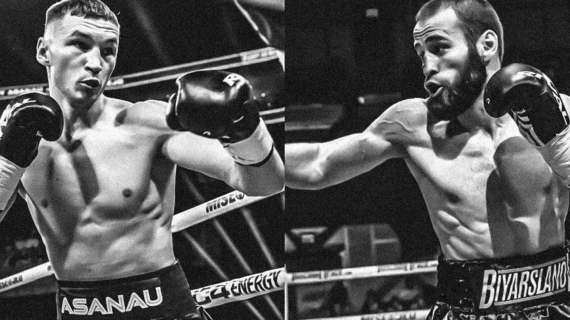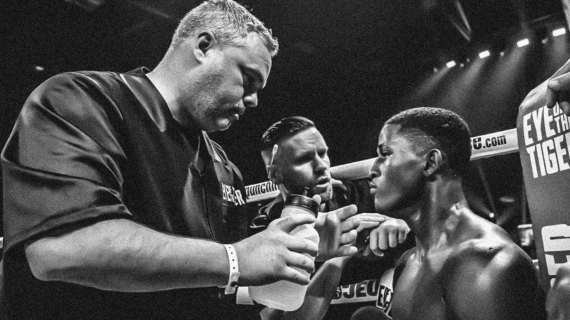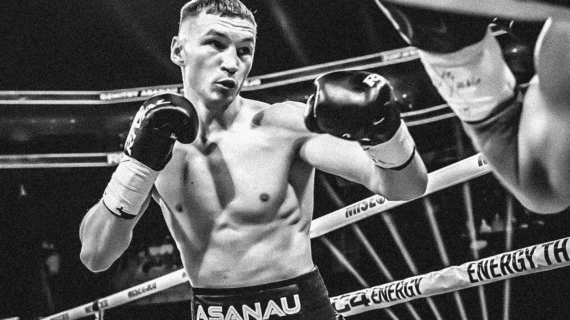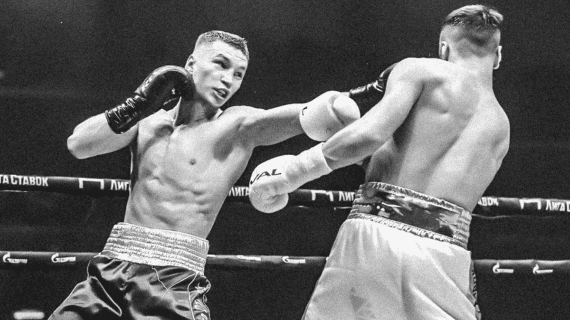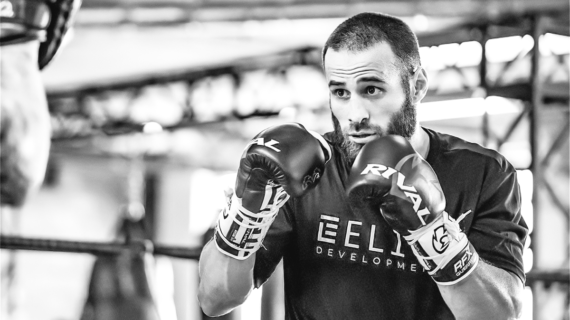Photo: Andrius Petrucenia – Dana White, UFC president
For years, Dana White, President and CEO of the UFC, has shown a strong interest in professional boxing. By March 2025, it’s no longer just a rumor…
White has officially announced his entry into the boxing world with a new league, in partnership with Turki Alalshikh, chairman of Saudi Arabia’s General Entertainment Authority, and backed by TKO Group Holdings, the parent company of the UFC and WWE. With events planned as early as 2026, this initiative promises to shake up the boxing landscape.
But what can we really expect from this alliance between the mastermind behind the UFC’s success and a Saudi prince so wealthy that he can fund fights we never even dared to dream of—brushing aside promoter disputes, TV network restrictions, and even traditional weight divisions?
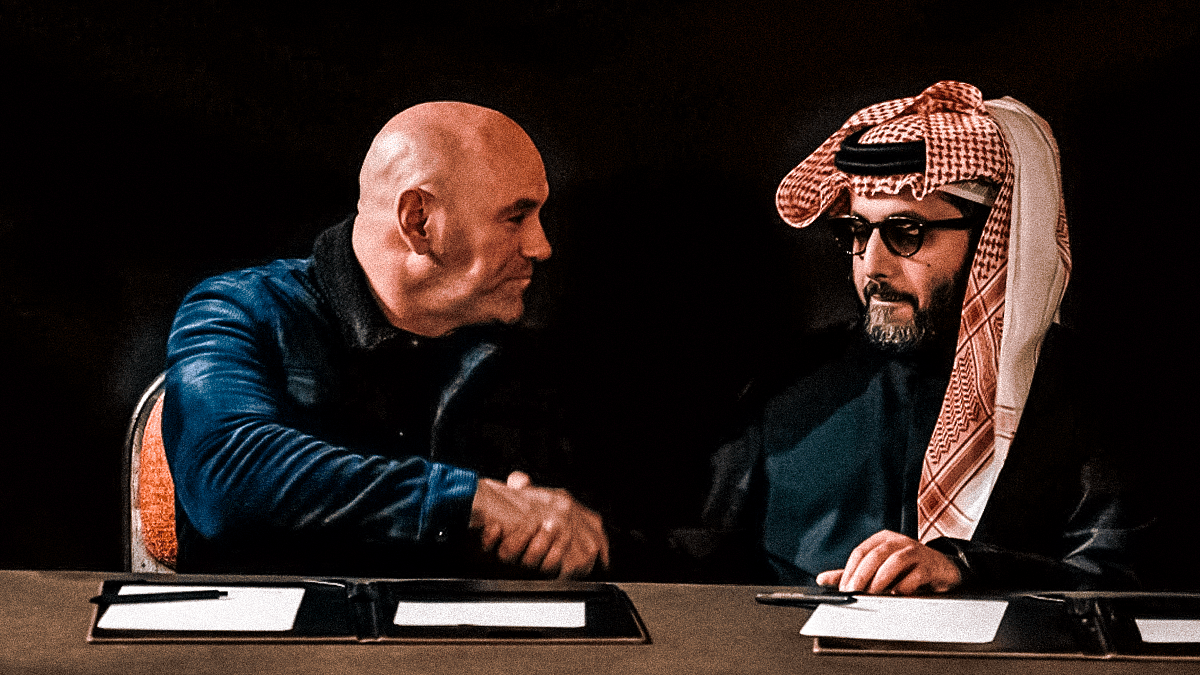
Photo: Ring Magazine – Dana White and Turki Alalshikh.
A Model Inspired by the UFC
Dana White has made it clear: he wants to bring the UFC’s successful model to boxing. A centralized organization where the best fight the best, with clear rankings and a structured path to world titles. No more fragmented boxing under multiple federations (WBA, WBC, IBF, WBO) with their countless belts.
White promises a simplified approach: one champion per division, one clear path to glory. A vision that could appeal to fans tired of avoided fights and diluted titles.
To achieve this, the league plans a talent development system: tournaments to identify prospects and academies to train them. Boxers will also have access to the UFC Performance Institutes, state-of-the-art training centers in Las Vegas, Mexico, and Shanghai. There’s even talk of a return to boxing’s original eight weight classes—though that seems far-fetched and difficult to implement.
I remain skeptical about the idea of a single ranking system—how can we expect Ring Magazine, owned by Turki Alalshikh, not to favor fighters willing to sign with him or participate in his events?
Back in 2015, when I first started covering boxing seriously, Al Haymon and PBC stormed into the sport. PBC’s plan was to bring boxing back to free TV and bypass the four major sanctioning bodies. They signed every fighter they could, aiming to control both the A-side and B-side of every equation. NBC, CBS, and ESPN served as their broadcasters.
But PBC eventually burned through its initial $500 million budget. Their fighters, being overpaid, fought less frequently, and today, there’s no buzz left around Al Haymon in boxing.
Yvon Michel was part of the PBC venture as a Quebec-based promoter. We also saw something similar in 2021 with Probellum—Richard Schaefer signed a ton of fighters and planned to reinvent the sport by partnering with numerous promoters. But, for reasons still unclear, Probellum quickly shifted to less ambitious projects, and I don’t even know if the company still exists today.
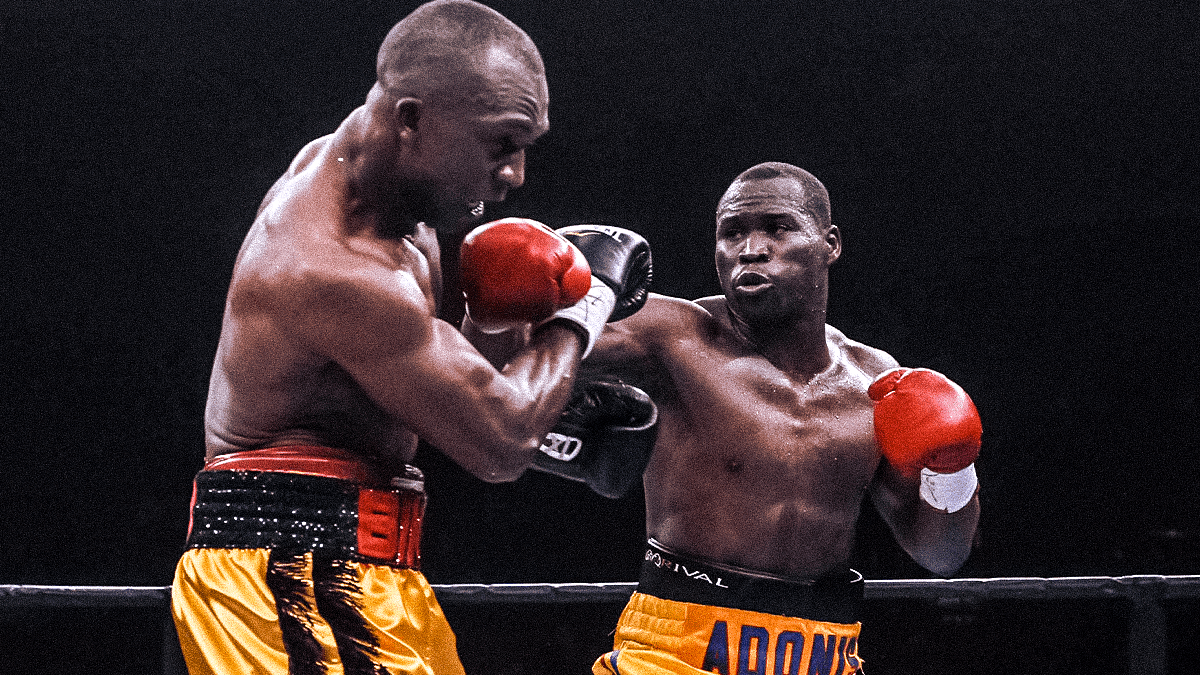
Photo: PBC Boxing – Sakio Bika vs Adonis Stevenson…
Better Production Quality?
With TKO Group Holdings at the helm, event production is expected to be spectacular. White promises “cutting-edge” broadcasts, similar to UFC events—polished production and an immersive experience, both live and at home. No more boxing events where the wait between fights drags on endlessly. White, who has often criticized the sport’s sluggish pacing, promises a more dynamic rhythm.
“Downtime is great at the pool—not in a boxing show.” – Noé Cloutier, boxing specialist
Having only watched about two UFC events in my life, I’ve always liked how they introduce fighters with pre-fight video packages. You get a glimpse of their gym, their specialties, and a short pre-fight interview…
The UFC knows how to sell the story behind a fight, and that could be a major asset for boxing. This attention to storytelling could also come with partnerships on major platforms. The details remain unclear, but TKO’s ties to ESPN (through the UFC) suggest a widely accessible and high-profile broadcast.
Add in Saudi funding, via Sela and Alalshikh, and budgets clearly won’t be an issue. There’s already talk of massive purses to attract big stars and stage superfights. Sela, a Saudi sovereign wealth fund dedicated to major events, has the resources to back its ambitions.
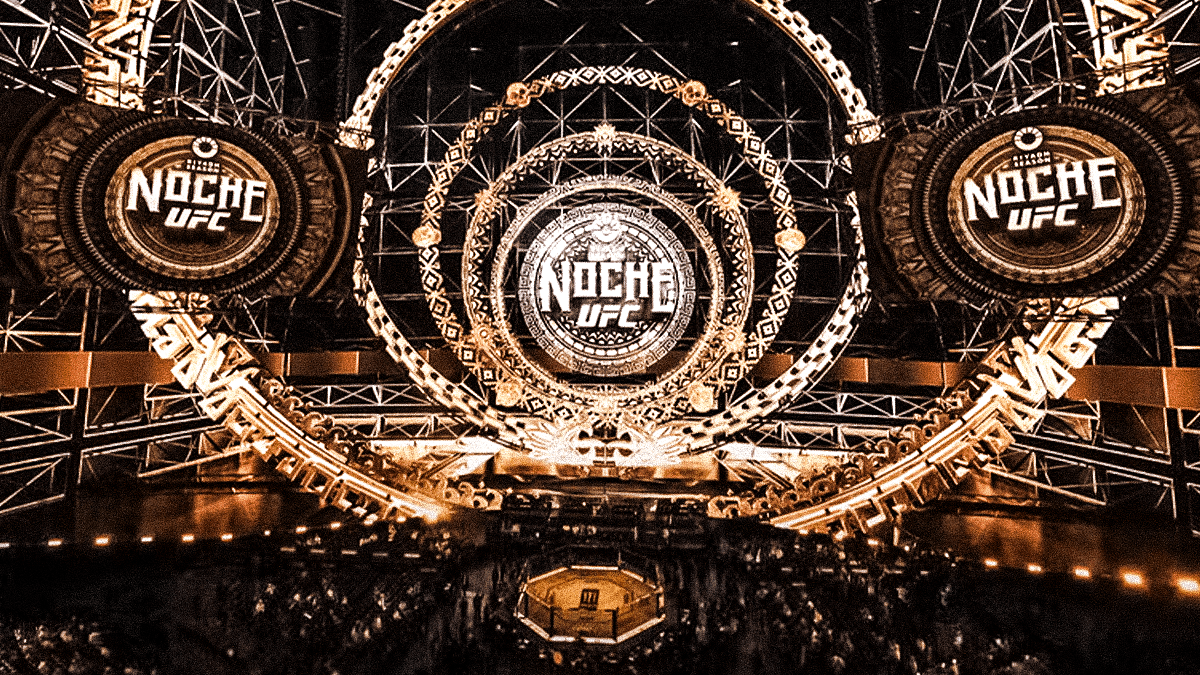
Photo: UFC – Event presented at the Sphere, in Las Vegas…
Will Fans Benefit?
For the audience, a more competitive and better-produced boxing product is appealing. White has a reputation for delivering on his promises, and his success with the UFC proves he knows how to captivate fans. But for the fighters, it’s more complicated.
In the UFC, fighters are under exclusive contracts with little control over their opponents or earnings.
In boxing, thanks to the Ali Act of 2000, fighters enjoy more freedom, with time-limited contracts. Can White impose such a rigid model in a sport where stars like Canelo Alvarez and Tyson Fury dictate their own terms?
I’ve often laughed at the purses UFC fighters receive. With what Floyd Mayweather earned against Marcos Maidana, you could have financed UFC 190 through 231! Add in the rematch, and that covers up to UFC 273.
But Saudi money could change everything. With virtually unlimited resources, the league could offer insane amounts to lure top names. Alalshikh has already proven his ability with fights like Fury-Usyk. The question is whether fighters will trade their autonomy for a big paycheck.
A Threat to Traditional Promoters?
White’s arrival won’t please everyone. Promoters like Eddie Hearn (Matchroom) or Bob Arum (Top Rank) could see their influence wane if this league establishes its own championship and sidelines existing federations.
Hearn responded cautiously, welcoming the idea while defending the current boxing structure, which he argues doesn’t need to be “torn down and rebuilt” as White suggests.
If the league attracts top fighters and struggles to coexist with the current ecosystem, it could reshape the balance of power. I’ve even had nightmares about a world with four traditional champions (IBF, WBA, WBC, WBO), plus a Ring Magazine title, and yet another ranking system to follow…
Verdict: I Have No Idea What to Think
Dana White’s entry into boxing, alongside Alalshikh and TKO, is going to stir things up. So far, only Teofimo Lopez has spoken publicly about it, while some champions continue to flaunt the WBC green belt.
If the project delivers, we could see a more fluid, competitive, and modernized version of boxing.
But the challenges are massive: convincing fighters, competing with established structures, and adapting an MMA-based model to a completely different sport. It’s an ambitious bet that could redefine boxing—or collapse under its own weight.
One thing is certain: with White in charge, it won’t go unnoticed.
I’ve seen PBC and Probellum attempt similar moves in the past. But this time, we’re replacing millions with billions. And sometimes, when money—especially unlimited money—is involved, a project can turn into a success.
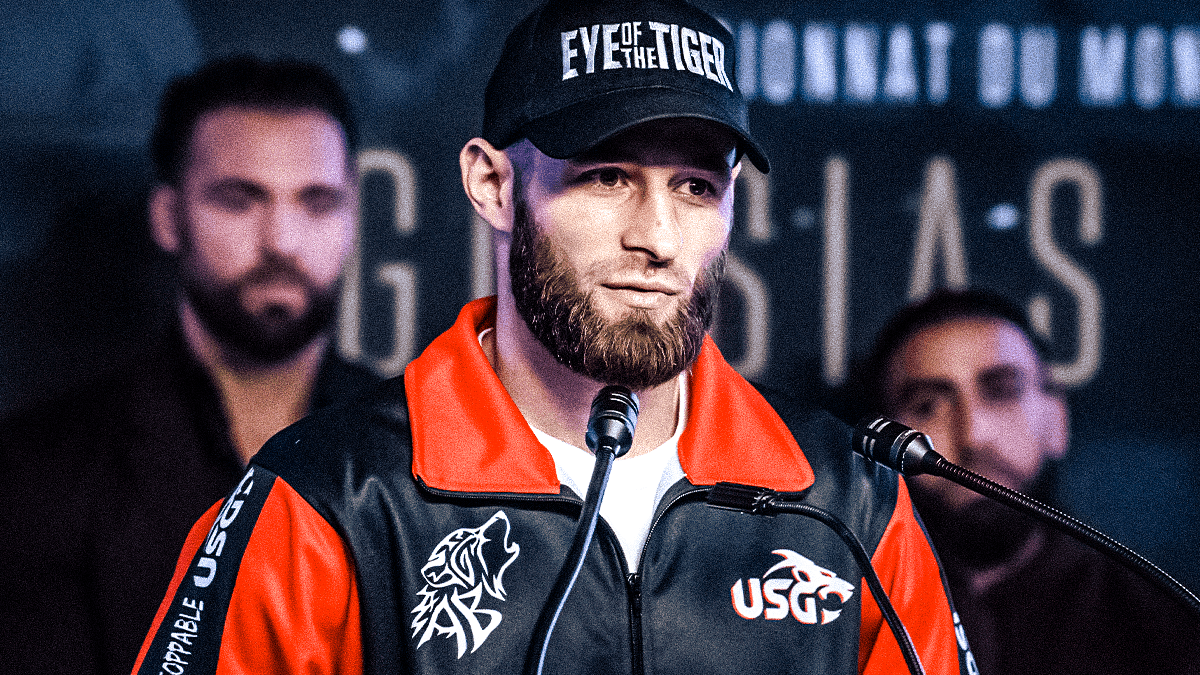
Photo: Vincent Ethier – Arthur Biyarslanov, former Probellum fighter…
In the Podcast
The first time I rented a UFC tape from the Videotron on Masson Street, I saw a guy walking to the ring with a crucifix on his back and a sumo wrestler facing off against a karateka.
Honestly? I didn’t hate it.
Enjoy your vacation, Réjean!

